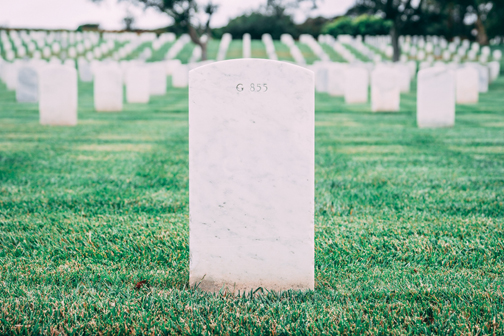It was after 2am and the graveyard-shift nurses drifted like ghosts in the hallway, tending to the dead and dying. It wasn’t that Michael* couldn’t sleep, even with meds he refused to take. He fought sleep with every fiber of his fragile body.
He had fought in a war he barely remembered. A crucifix hung beside his bed, but he’d only found God late in life. He had no friends. His wife died a long time ago, and he’d watched everybody else he ever loved die. Now in his 80s and filled with cancer, he lay here in this hospice for old soldiers, so withered that he might disappear altogether by morning.
And he was alone.
Michael was on God’s schedule now. Nobody knows when the ending—the “transition,” the nurses call it—will come. Sometimes the most deteriorated veterans hang on for weeks, and the hardiest go in hours. But Michael was close.
It was closer to dawn than dusk, but he resisted sleep. It required every bit of his strength to force his eyelids to stay open.
“Please stay,” he begged me, his halting voice barely a whisper. “Talk to me. Don’t let me go to sleep.”
“I’m right here and I’m not going anywhere,” I assured him. “But maybe you should try to sleep.”
He raised a bony hand, brushing me away. “I’m afraid,” he said, “if I fall asleep I’ll never wake up.”
We talked for a long time, a couple hours. When he couldn’t fight it anymore, he slid gently to sleep. I stayed a while longer, just to make sure he was still breathing. I told him I’d be back. Then I left to visit another soldier in another room, dying alone.

That was my job, talking to the VA hospice’s dying veterans who had nobody else to talk to. I volunteered to do it, and I was compensated in vending-machine snacks and stale, late-night coffee that had stagnated in waiting-room urns since the day before. And it was a privilege to do it
No Veteran Dies Alone** is a program at some VA hospitals. As its name suggests, its mission is to provide comfort to old soldiers, sailors, airmen, and Marines who come to the end of their lives with nobody to say goodbye. Comfort means many things to the dying. Maybe conversation, reading, watching TV with them, playing checkers, holding their hands, and sometimes just sitting silently. The idea was simply to be there.
At the Audie Murphy Memorial VA hospital in San Antonio, there were only two of us. I was the new guy. After several weeks of government red tape and hospice training, an old hand named Sam Castorani, a career Army guy who’d been doing this for many years, showed me the art of saying hello and goodbye, with everything in between.
The hours sucked. The chaplain expected us to start at 10pm and leave at 6am when the sun came up. It turns out that many of the patients, disrupted by surgeries, drug cocktails, long naps—and sometimes fear of death—were still awake in the wee hours. The quiet and the dark turned those hours especially lonely. And sometimes, my guys had fallen into comas, so I just talked. Somebody said the sense of hearing was their last connection to the outside world, so just talking to them reassured them that somebody was there beside them.
On my nights, I learned the infinite ways a human makes his way through life … and death. Some had outlived their children. Some never had anyone to begin with, or chased them away. Many regretted it and some were resigned to it.
And I learned that very few of them feared being dead. Instead, they feared the dying part. Would it hurt? Would they embarrass themselves by screaming or crying or soiling themselves? Would anybody care that they’d been here at all?
It is almost cliché to say I respect our veterans because I know what they have risked for us. But when I hear people say, “We’ll never forget our troops,” I sometimes feel it’s just something they say before they go back to whatever they were doing. This was my way to not go back to what I was doing.
I genuinely believe NOBODY should die alone. I can’t predict how it will come for me, but I hope that my family is there when it does. But even if they aren’t, I want to see somebody’s face or hear somebody’s voice, as if I had a traveling companion.
I don’t know if I ever said anything to make the dying part easier. Probably not. But I was there. I wasn’t hearing their confessions nor administering last rites. I was just … there.
Then COVID-19. Just like that, hospitals and other health facilities locked down. No potentially infected volunteers or visitors were allowed in the Audie Murphy VA. Sam and I were pariahs and could not be there. We haven’t been back, and during our long hiatus, I have moved away from San Antonio. As heartbreaking as it is, in that time, even veterans with family and friends have died alone in VA hospitals everywhere.
I still think about Michael a lot. He was my first visit. After he fell asleep and I was satisfied he hadn’t died, I left. The next morning, they told me he died in his sleep before dawn.
A military chaplain spoke at his funeral. Michael had been a Marine, so a squad of Marines fired his final salute. And I sat alone in the national cemetery to say goodbye. He didn’t die alone. And I was relieved that the last thing he ever heard—if they are right—was a promise that I would be there.
* Not his real name
** The program sometimes has different names in different VA hospitals, but all have the same mission.
